Did you know that travelers lose an average of 6-8% of their budget due to poor currency exchange practices? Managing your money wisely is crucial for a smooth and stress-free trip. This guide is here to help you master the art of handling finances in a foreign country.
When traveling, understanding the local currency is key. In many West African nations, the official currency is the West African CFA Franc (XOF). Knowing the exchange rate and where to get the best deal can save you both time and money.
From using travel cards to avoiding high fees at ATMs, this guide covers everything you need to plan your budget effectively. Whether you’re dining at a local restaurant or shopping at a market, having the right payment method ensures a seamless experience.
Stay tuned for tips on managing your spending, avoiding hidden costs, and making the most of your travel budget. Let’s dive in!
Introduction: Currency and Payment Essentials for Your Senegal Trip
Understanding the local currency can make or break your travel experience. Before you embark on your journey, it’s crucial to familiarize yourself with the West African CFA Franc (XOF). This knowledge helps you avoid unnecessary fees and ensures you get the best value for your money.
Exchange rates play a significant role in your spending. The mid-market rate is the real rate banks use, but many providers add markups. Knowing this difference can save you time and money. For example, exchanging currency at airports often comes with higher fees. It’s better to plan ahead and exchange money before you arrive.
Why Knowing the Currency is Key
When you understand the local currency, you can budget effectively. This means knowing how much things cost, from meals at a restaurant to transportation. It also helps you avoid scams or overpaying for goods and services.
Carrying a mix of cash and cards is a smart strategy. While cash is widely accepted in markets and smaller establishments, cards are convenient for hotels and larger purchases. Having both options ensures you’re prepared for any situation.
Overview of the Payment Landscape
In many places, cash remains the primary payment method. However, ATMs are available in major cities, though they can run out of cash on weekends. It’s wise to carry a backup, such as a travel card, for added flexibility.
By mastering the local payment systems, you’ll navigate your trip with ease. Stay tuned for detailed strategies on exchanging money, using cards, and managing your budget effectively.
Understanding the Currency Landscape in Senegal
The West African CFA Franc (XOF) is more than just money—it’s a gateway to seamless travel experiences. As the official currency in Senegal and several other West African nations, the XOF plays a vital role in the region’s economy. Understanding its value and how it works can make your trip smoother and more enjoyable.
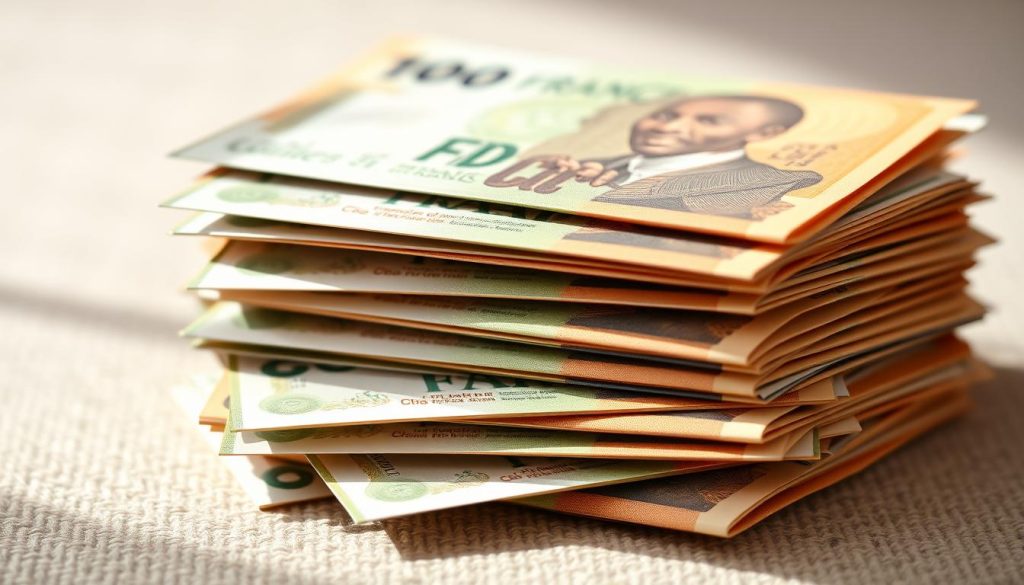
What is the West African CFA Franc (XOF)?
The XOF is the official currency used in Senegal and other member countries of the West African Economic and Monetary Union (WAEMU). It’s pegged to the Euro, which means its value is relatively stable. This stability makes it easier for travelers to plan their budgets without worrying about sudden fluctuations.
Here’s a quick overview of the XOF’s role:
- It’s widely accepted in markets, restaurants, and transportation services.
- Cash is the primary payment method, especially in rural areas.
- ATMs are available in cities, but it’s wise to carry some cash as a backup.
Decoding the USD/XOF Mid-Market Rate
The mid-market rate is the real exchange rate used by banks and major currency services. It’s the midpoint between the buy and sell prices of two currencies. For example, if you’re exchanging USD to XOF, the mid-market rate reflects the true value without any markups.
“The mid-market rate is the fairest benchmark for currency exchange. Always compare it to the rates offered by providers to avoid hidden fees.”
Here’s how you can use this knowledge:
- Monitor live rates using online currency conversion tools.
- Compare rates from banks, ATMs, and exchange bureaus.
- Avoid exchanging currency at airports, where fees are often higher.
| Provider | Exchange Rate | Fees |
|---|---|---|
| Bank | 1 USD = 600 XOF | $5 flat fee |
| ATM | 1 USD = 595 XOF | 3% transaction fee |
| Exchange Bureau | 1 USD = 605 XOF | No fee |
By understanding the mid-market rate and comparing providers, you can save money and make the most of your travel budget. Stay tuned for practical tips on exchanging currency and managing your spending effectively.
Navigating Currency Exchange Strategies
Smart currency exchange strategies can save you both time and money during your travels. Planning ahead ensures you get the best rates and avoid unnecessary fees. Here’s how to make the most of your exchange process.
When to Exchange USD to XOF
Exchanging money before your trip often offers better rates and lower fees. Fluctuating exchange rates can increase costs if you wait too long. For example, airport and hotel exchanges typically charge higher fees, making them less ideal.
Using online tools to track the mid-market rate can help you identify the best time to exchange. Providers like Wise and Chime offer competitive rates, making them a great option for travelers.
Best Locations for Currency Exchange
City centers are often the best places to exchange currency. Local banks and exchange bureaus usually offer better rates than airports or hotels. Always compare rates from multiple providers to ensure you’re getting the best deal.
Here are some tips for safe and efficient exchanges:
- Carry a mix of cash and a travel card for flexibility.
- Avoid exchanging large amounts at airports or tourist areas.
- Use trusted providers like Wise for competitive rates.
By following these strategies, you can keep your travel budget in check and enjoy a stress-free experience. Planning ahead and staying informed are the keys to successful currency exchange.
Payment Methods in Senegal: Cash and Card Options
Choosing the right payment method can make your trip smoother and more enjoyable. Whether you prefer cash or cards, understanding the pros and cons of each helps you stay prepared for any situation.
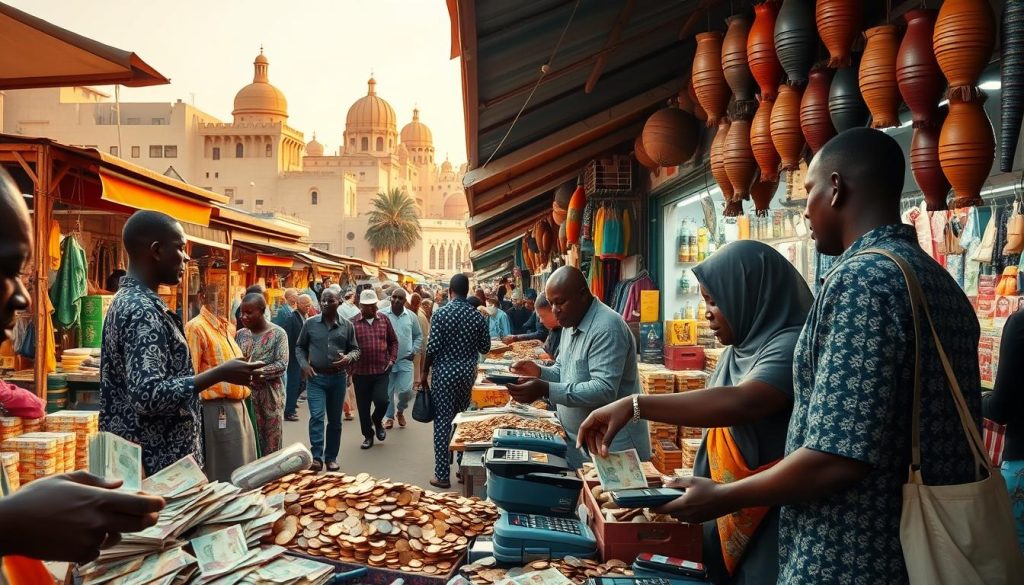
Benefits and Drawbacks of Cash Payments
Carrying cash is essential for small purchases, tipping, and places where cards aren’t accepted. In many local markets and rural areas, cash is the primary payment method. It’s also useful for budgeting, as you can physically see how much you’re spending.
However, carrying large amounts of cash can be risky. It’s important to keep it secure and only carry what you need for the day. ATMs are available in cities, but they may run out of cash on weekends or charge high fees.
Utilizing Travel Money Cards for Flexibility
Travel money cards, like the Wise Multi-Currency Card, offer a secure and flexible alternative. These cards allow you to load multiple currencies and lock in competitive exchange rates. They’re widely accepted in hotels, restaurants, and larger stores.
Here’s why travel cards are a great option:
- They’re safer than carrying large amounts of cash.
- You can track your spending through a mobile app.
- They often have lower fees compared to traditional bank cards.
Having a backup payment method, like a travel card, ensures you’re never stuck without access to funds. It’s a smart way to manage your budget and enjoy a stress-free trip.
How to Choose the Right Travel Money Card for Senegal
Picking the right travel money card can make your journey hassle-free and budget-friendly. With so many options available, it’s important to compare features like fees, exchange rates, and flexibility. This guide will help you find the best card for your needs.
Wise Multi-Currency Card Overview
The Wise Multi-Currency Card is a top choice for travelers. It supports over 40 currencies, including the West African CFA Franc (XOF). This card offers the mid-market exchange rate, which means you get the fairest rate without hidden markups.
Key features include:
- Low ATM fees with some fee-free withdrawals monthly.
- Ability to hold and spend in multiple currencies.
- Secure online management through the Wise app.
“The Wise card is a game-changer for international travelers. It’s flexible, transparent, and cost-effective.”
Comparing Alternatives like Chime, Monzo, and Netspend
If you’re exploring other options, here’s a quick comparison:
- Chime: No foreign transaction fees, but charges $2.50 for out-of-network ATM withdrawals. Trustpilot score: 2.5/5.
- Monzo: No ATM fees, but specific operators may charge. Trustpilot score: 4/5.
- Netspend: May have foreign transaction fees up to 4%. Trustpilot score: 4.2/5.
Each card has its strengths, so consider your spending habits and travel plans before deciding.
What to Look for in a Travel Card
When choosing a travel card, focus on these criteria:
- Low fees for ATM withdrawals and transactions.
- Mid-market exchange rates for better value.
- Flexibility to manage your account online or via an app.
The right card will help you manage your budget effectively while providing a secure payment method abroad.
Application Process and Requirements
Applying for a travel card is straightforward. Most providers require basic information like your name, address, and ID. The Wise card takes 14-21 days to arrive, while Chime and Monzo typically arrive within 7-10 days.
By choosing the right card, you’ll enjoy a seamless and cost-effective travel experience. Take the time to compare your options and pick the one that suits your needs best.
Senegal: Ultimate Travelers Guide to Currencies & Payments
Mastering your finances abroad ensures a stress-free and enjoyable journey. This guide has equipped you with essential tips to handle your money wisely, from understanding the local currency to choosing the right payment methods. By following these strategies, you can make the most of your travel budget and avoid unnecessary costs.
Understanding the West African CFA Franc (XOF) is crucial for a smooth trip. This currency is widely accepted in markets, restaurants, and transportation services. Knowing the exchange rate and where to get the best deal can save you both time and money. Always compare rates from banks, ATMs, and exchange bureaus to ensure you’re getting the fairest value.

Here’s a quick recap of the best practices for exchanging money and making payments abroad:
- Exchange currency before your trip to avoid higher fees at airports or hotels.
- Carry a mix of cash and a travel card for flexibility in different situations.
- Use trusted providers like Wise or Chime for competitive exchange rates and low fees.
“A well-planned budget and the right payment methods can transform your trip into a memorable adventure.”
Travel cards, such as the Wise Multi-Currency Card, offer a secure and flexible way to manage your spending. These cards allow you to hold multiple currencies, lock in competitive rates, and track your expenses through a mobile app. They’re widely accepted in hotels, restaurants, and larger stores, making them a convenient option for travelers.
Here’s a comparison of popular travel cards:
| Provider | Key Features | Fees |
|---|---|---|
| Wise | Mid-market rates, multi-currency support | Low ATM fees |
| Chime | No foreign transaction fees | $2.50 for out-of-network ATMs |
| Monzo | No ATM fees | Specific operator charges may apply |
By following these guidelines, you’ll be well-prepared to handle your finances abroad. Refer back to earlier sections for detailed tips on ATM withdrawals, payment security, and pre-trip planning. With the right knowledge and tools, you can enjoy a seamless and cost-effective travel experience.
Managing ATM Withdrawals and Avoiding Extra Fees
Managing your ATM withdrawals wisely can save you from unnecessary fees and stress. Whether you’re in a bustling city or a remote area, knowing how to navigate ATM transactions ensures you keep more money in your pocket. Here’s how to make the most of your withdrawals while traveling.
Tips for Low-Cost ATM Withdrawals
Withdrawing cash in the local currency is often the best way to avoid extra charges. Many ATMs offer dynamic currency conversion (DCC), which can add hidden fees. Always choose to withdraw in the local currency to get a fair exchange rate.
Here are some practical tips to minimize ATM fees:
- Choose ATMs with low or no fees: Look for ATMs affiliated with major banks or those that explicitly state no withdrawal fees.
- Withdraw larger sums less frequently: This reduces the number of transactions and associated fees.
- Use travel cards with free withdrawals: Cards like Wise offer free monthly withdrawals, saving you money over time.
“Always check the ATM screen for warnings about extra fees. These can add up quickly if you’re not careful.”
Dynamic Currency Conversion Pitfalls
Dynamic currency conversion (DCC) can seem convenient, but it often comes with poor exchange rates and hidden fees. When prompted, always decline DCC and opt for the local currency instead. This ensures you get the mid-market rate without unnecessary markups.
Here’s a comparison of ATM fee structures from different providers:
| Provider | Withdrawal Fee | Exchange Rate |
|---|---|---|
| Local Bank | $3 per transaction | Mid-market rate |
| ATMs in Tourist Areas | $5 per transaction | Marked up by 3-5% |
| Wise Card | Free (up to 2 withdrawals/month) | Mid-market rate |
By following these tips, you can avoid unnecessary fees and make the most of your travel budget. Planning ahead and staying informed are the keys to smart ATM withdrawals.
Security and Convenience in Payment Options
Keeping your money safe while traveling is just as important as managing it wisely. Fraud and unexpected fees can quickly turn a dream trip into a stressful experience. By taking a few precautions, you can protect your funds and enjoy peace of mind.

Preventing Fraud and Dynamic Currency Conversion Issues
Fraud is a common risk when using cards abroad. Always shield your PIN when entering it and avoid using public Wi-Fi for financial transactions. Enable notifications on your travel card to track spending in real time.
Another issue to watch for is dynamic currency conversion (DCC). This service converts your purchase into your home currency at the point of sale, often with poor exchange rates and hidden fees. Always decline DCC and choose the local currency instead.
“Declining DCC ensures you get the mid-market rate, saving you money on every transaction.”
Maintaining a Backup Payment Method
Carrying a backup card or a small amount of cash is a smart idea. ATMs can run out of money, or your primary card might get blocked. A backup ensures you’re never stranded without access to funds.
Here are some practical steps to stay secure:
- Use ATMs in secure locations, like banks or shopping centers.
- Keep a separate emergency fund in case of unexpected issues.
- Regularly monitor your account for unauthorized transactions.
By following these tips, you’ll protect your budget and enjoy a worry-free trip. A secure payment method is as important as a cost-effective one.
Practical Planning Tips for Currency and Payment Success
Planning your finances before your trip can make all the difference. A little preparation ensures you avoid unnecessary stress and enjoy your journey to the fullest. Here’s how to handle your money wisely, from pre-trip preparations to on-arrival tactics.
Pre-Trip Preparation Strategies
Start by researching the local currency and exchange rates. Knowing the mid-market rate helps you identify the best time to exchange your money. Avoid last-minute exchanges at airports or hotels, as they often come with higher fees.
Here’s a checklist to get you started:
- Order a travel card in advance to lock in favorable rates.
- Exchange a small amount of cash before your trip for immediate expenses.
- Compare providers like Wise or Chime for competitive rates and low fees.
“Preparing your finances ahead of time ensures you’re ready for any situation.”
On-Arrival Payment Tactics
Once you arrive, locate trusted ATMs in secure areas like banks or shopping centers. Make small initial withdrawals to avoid carrying large amounts of cash. This reduces the risk of loss or theft.
Here are some on-arrival tips:
- Use your travel card for larger purchases and hotels.
- Keep a backup payment method, such as a second card or emergency cash.
- Monitor your spending through a mobile app to stay within your budget.
By following these strategies, you’ll handle your finances with confidence. A well-planned approach ensures a smooth and enjoyable trip.
Conclusion
Handling your finances abroad doesn’t have to be overwhelming. By planning ahead and understanding the West African CFA Franc, you can save both time and money. This guide has equipped you with essential strategies to manage your currency and payments effectively.
Using a mix of cash and a reliable travel card ensures flexibility in any situation. Trusted providers like Wise offer competitive rates and low fees, making them a smart choice for your trip. Monitoring exchange rates and avoiding unnecessary fees will keep your budget intact.
With these tips, you’re ready to enjoy a seamless and stress-free experience. Refer back to earlier sections for detailed guidance, and feel confident as you explore new places. Happy travels!
The above is subject to change.
Check back often to TRAVEL.COM for the latest travel tips and deals.

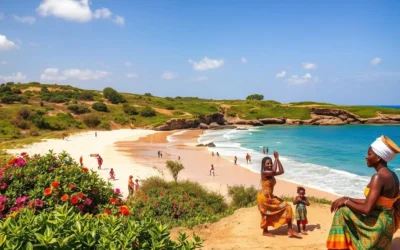
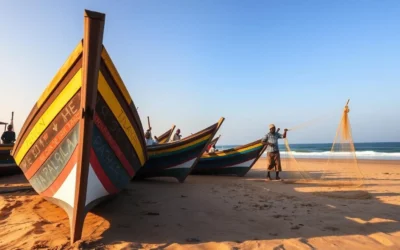

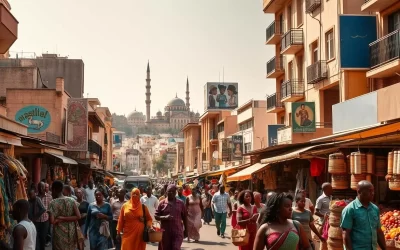
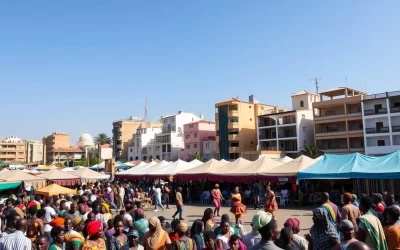
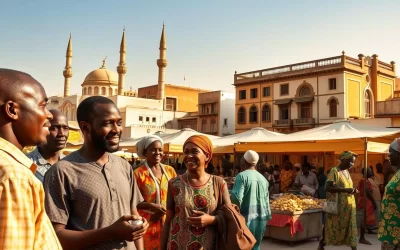
0 Comments